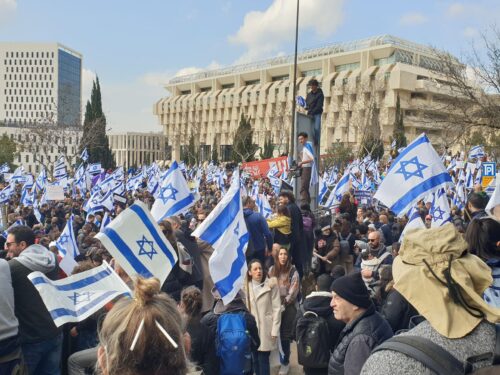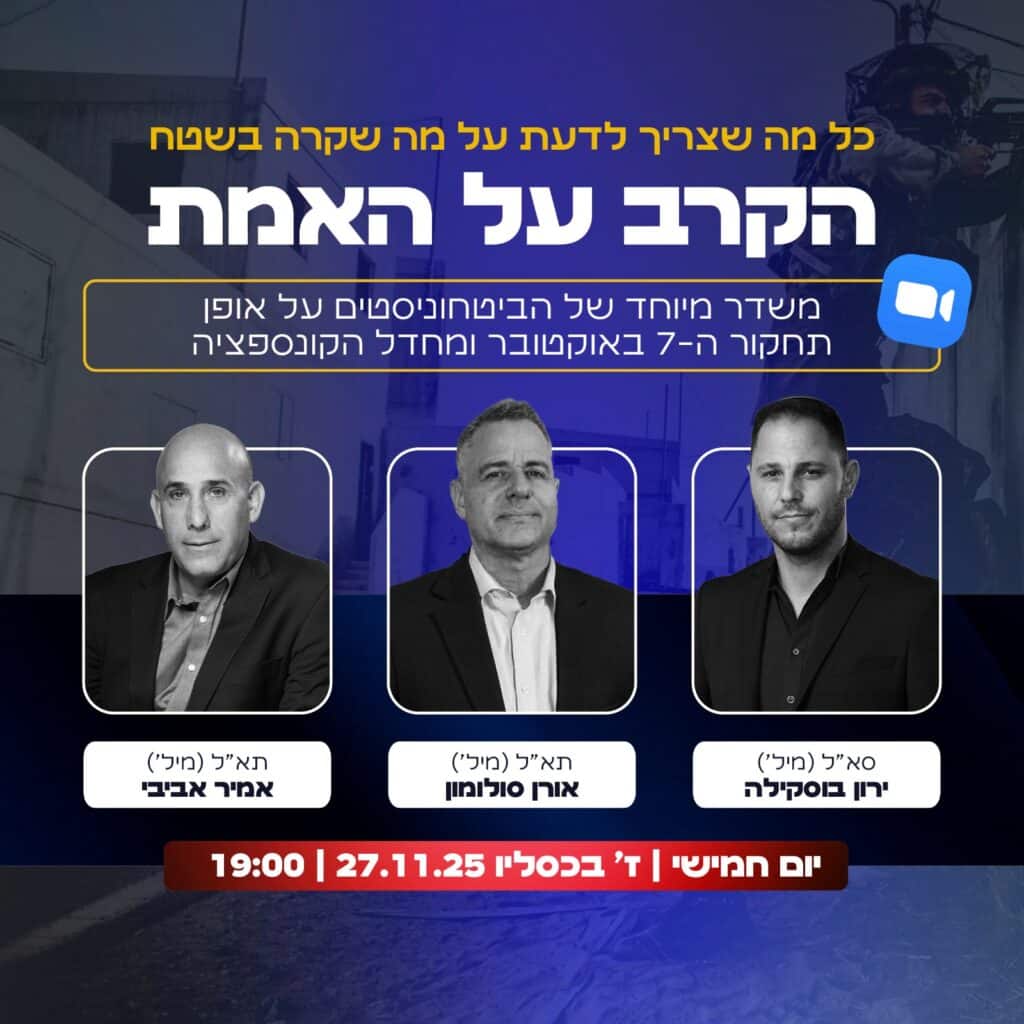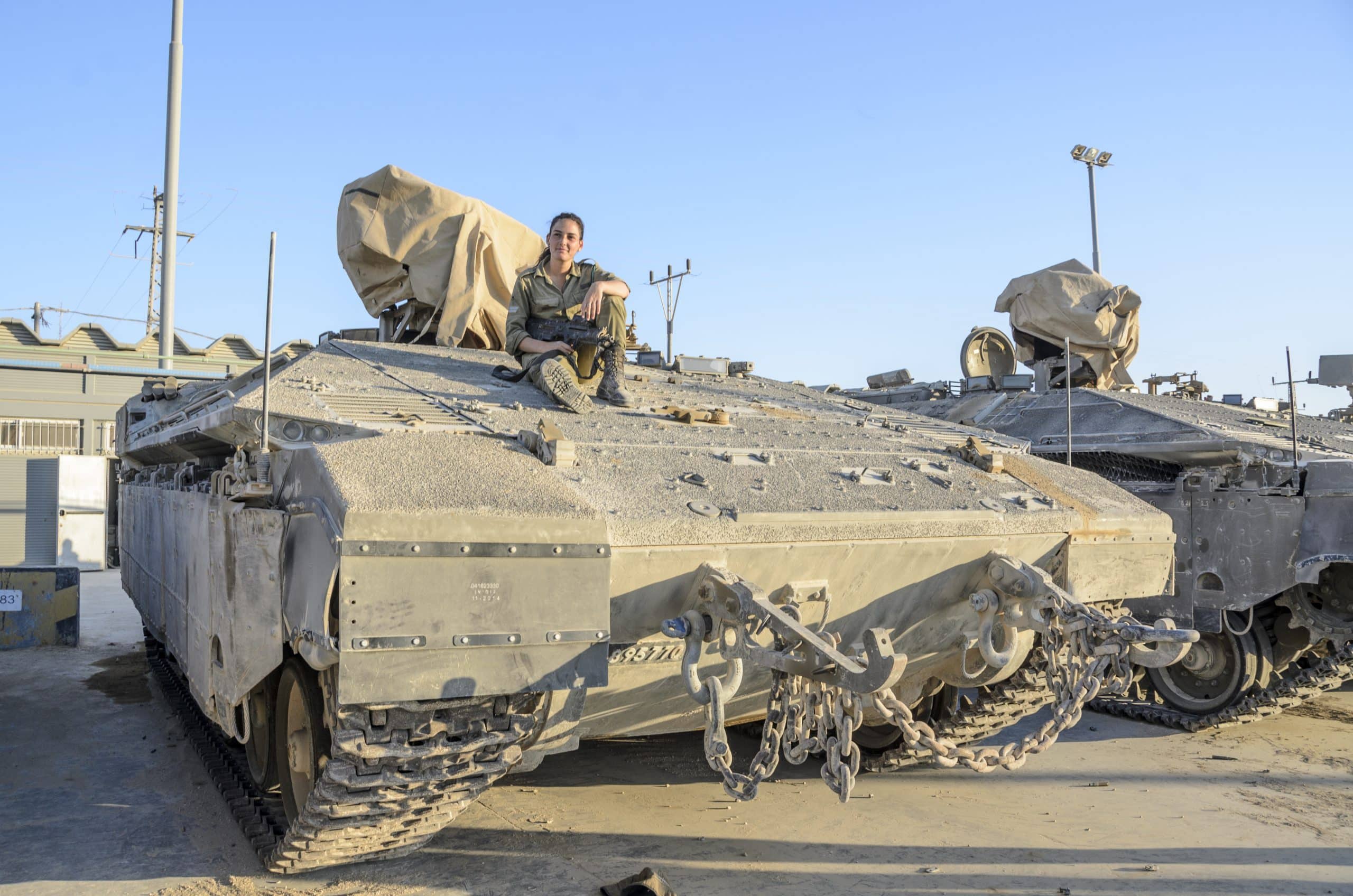
Abstract
For years the ground forces provided the grist for the cutback mills in the IDF. Usually under orders from the Treasury, the IDF cut back Ground Forces budgets and severely hobbled the infantry, armored corps, the artillery corps, the command, training and skilling – a trajectory that came to a head on October 7. Lieutenant Colonel (Res.) Shosh Raban, who was, among her other roles in the Israel security forces, Head of Planning and Organization in the Central Command and in the Ground Forces until 2010, and who now serves as a member of the Advisory Committee of the Israel Defense and Security Forum, explains how this concept came into being and how the concept of waging war without ground forces came crashing down.
“The concept was that there was no need for a large maneuvering ground army. The most senior figures in the Israel security forces believed we could win on the battlefield through an outstanding air force and precision intelligence. And of course, with technology. So they strengthened the Air Force and they strengthened Intelligence, they built fences everywhere, believing that technology would be able to substitute for humans, saving on the order of battle. We cut back in every conceivable place.
The grand vision underpinning the cutbacks was that of Ehud Barak, and he promoted this vision while serving as Chief of General Staff – “a small, smart army”. “This concept took root among all the system’s senior officials and commanders, who ordered sweeping cutbacks in the number of soldiers and professional servicemen, in the number of tanks, APCs, divisions and maneuvering brigades, and of course in the shortening of the conscription period and lowering the discharge age from reserve military service”.
And you experienced this as Head of Organization Arm?
“Yes, while I was Head of Organization Arm in the Central Command and, subsequently as Head of Organization Arm in the Ground Forces, there were plenty of changes, which all meant continuing erosion of the ground forces – in terms of combat order of battle, in terms of their weapons, and in terms of the headcount in the standing army. Along with this we invested in new technologies and advanced weaponry: state-of-the-art tanks such as the Merkava 4, NAMERs, the Wind Jacket system and the DLA (Digital Land Army) system, under the leadership of Gen. (res.) Yiftach Ron Tal as Commander of the Ground Forces, and we also reinforced the special units – YAHALOM, Egoz, Oketz, Duvdevan and so forth, which in itself was, with hindsight, a highly appropriate decision, in view of the importance of these units in the current war as our “iron fist”.
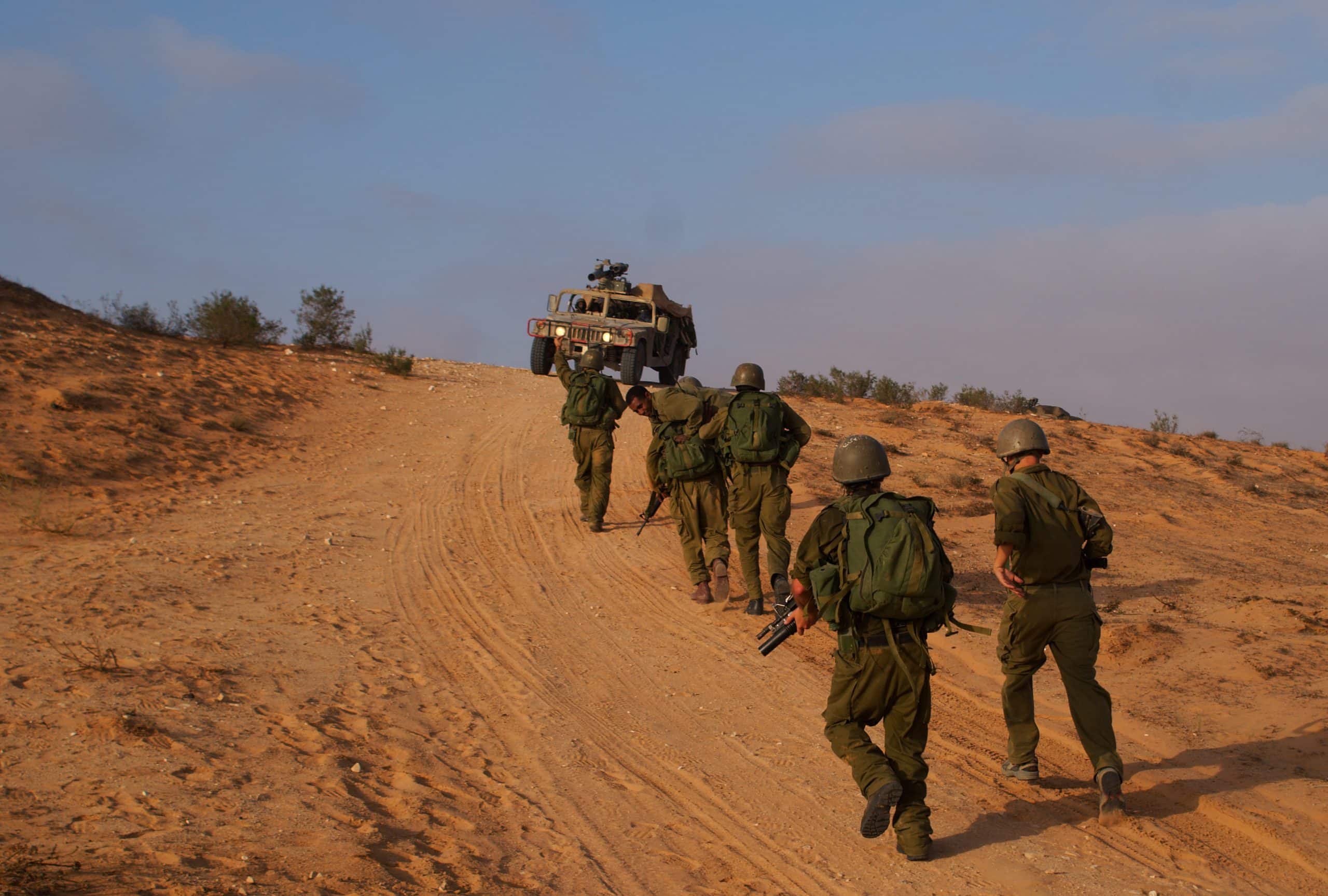
“We cut back almost a billion from the training budget”
What to these cutbacks look like in reality?
“We closed down division and corps commands, we cut back armored brigades, we combined emergency stockpiles, we converted armored brigades into new brigades and so forth. The Combat Engineering Corps is the only one that was not downsized – in fac there we acquired many new machines such as the D-9 and bulldozers, all critical instruments in this warfare in Gaza and in general”.
Where, in your opinion, have these cutbacks been most severely felt?
“The most severe cutback, at the time, was in training. Training was the first place that took a hit in every round of cutbacks. There were years when the army simply did not conduct maneuvers. The training budget was the most readily-available so it was the first to get cut. Between 2003 and 2006, almost one billion Shekels were cut back from the budget earmarked for training. In recent years too, the reserve army’s training dwindled to a trickle. There are reservists that got drafted on October 7 after years without serving or training. For this reason the two weeks prior to the onset of the ground maneuver were critical for reorganizing, training and returning to combat fitness”.
You’re saying the army actually had not prepared for all-out war?
“I think nobody really believed in a scenario of combat on more than one or two arenas at the most. Nobody really believed we would reach the kind of situation we are in now, and we didn’t really prepare ourselves for this scenario – in any conceivable aspect – order of battle, reserve forces, armaments. Even if the possibility of a war had been taken into consideration, nobody believed the ground army’s role in that war would be so significant, so decisive. The more likely scenario was a war in which we would not have to deploy the ground forces at such numbers and with such force”.
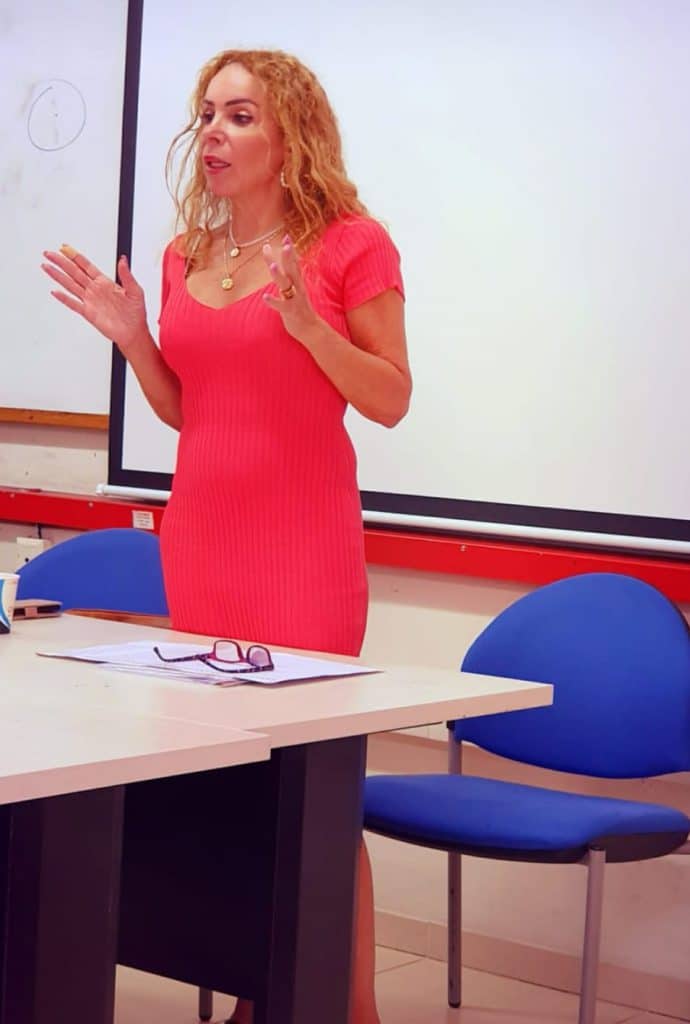
And how, in your opinion, is this going to change now?
“After the war, the priorities will doubtlessly be reshuffled: conscription will be extended back to three years as a minimum, the reserve military service requirement will be restored to 30 days per year as a minimum, and the discharge age might be raised once again too. And of course, the order of battle will be significantly scaled up – more armor, more infantry, more tanks. The special forces will also have to be augmented. Units such as the Combat Engineering Corps’ YAHALOM unit will need to be doubled, if not tripled, in size. We will have to strengthen the entire territorial defense organization and the alert squads – increasing them in numbers, training and arming them. They are our first line of defense”.
Do you think we’re going to need to set up an entirely new corps – the Subterranean Corps”?
Raban speaks not only of numeric changes, but also of an entire, profound conceptual about-face. “We are going to have to rethink our entire defensive strategy. In the past there were plenty of patrols, but over the years these have diminished and we have come to rely on the fence. We will need to go back to relying on the human defense, and also to shift the defense to the other side of the border, to the Palestinian side. Part of our intelligence failure was that the intelligence-gathering bodies had no hold in the field, meaning that in future we will need to restore and revamp the HUMINT element, plus complete operational control over the space and operational flexibility”.
Another change concerns subterranean warfare. “We are going to have to construct an entire subterranean warfare combat doctrine. This is happening as we speak, with the IDF learning lessons and drawing conclusions on the fly, but we will need to look at this in greater detail and we might even need to establish a subterranean corps to deal with this underground warfare with all its different levels. This is a unique form of warfare, it combines elements of infantry, engineering, maneuvering, and other elements”.
Were we mistaken in relying so heavily on technology?
“Every place we cut back and prioritized technology – is where we took a hit. We have got to go back and strengthen certain forces alongside the technology, not instead of it. I believe that after the war we will emerge with a new army, much larger, much better trained and much better equipped. It is excellent even now – but post October 7 we realize it is impossible to win a war from the air. One cannot reach the command posts, the shafts, the hospitals, and to destroy all their capabilities from the air. Add to this the fact that we are an army that works to a different code of ethics. The land army is a keystone of the integrated battlefield and we will need to strengthen it substantially”.

“The military needs to be stricter with its soldiers”
“I think discipline has to be restored in the military. The military needs to be stricter with its soldiers – less parental involvement, less media exposure. When my brother was in Golani 30 years ago, he would come home, fall asleep in his fatigues and wake up at the end of the Sabbath. My mother would peel off his boots, his socks stuck onto his blisters. When my sone was drafted into Golani three years ago, he came home tired, but not sufficiently exhausted, in my opinion. Nowadays soldiers’ welfare and service conditions are much higher on the list of priorities. Training is suspended when it gets exceptionally hot or cold, hazing is forbidden and all sorts of other restrictions apply. I prefer to have our soldiers train under the harshest conditions. “Tough in training, easy on the battlefield” – this is not some empty cliché. Our enemy is determined and ruthless, our soldiers, who already now are exhibiting superiority, infinite fighting spirit and professionalism, have to be prepared for any eventuality”.
“It is a mistake to admit women into units like 669 (Rescue and Evacuation) on grounds of pre-induction waivers”.
One more important conclusion from October 7 is about including women in combat roles. Much has been said of the heroism and resourcefulness of women fighters in the bitter battled fought that day, but Lieutenant Colonel Raban sets limits to this as she sees fit. “I’m a firm believer in women’s capabilities. Women in this war have emerged, and are still emerging, in all their glory, being courageous resourceful, and there is scope for still more combat roles they can fulfill. This being said, I do not agree with the approach of including women in combat when this is based on affirmative action. People’s lives are at stake here, so I do not believe in inclusion of women – unless it is done strictly as equals in every sense of the word. Zero waivers, zero easements. And they can do it”.
“The army didn’t even want to recruit large numbers of ultra-orthodox personnel”
In a related context of upscaling the military headcount and equal sharing of the burden, Raban foresees a revolution in ultra-orthodox recruitment as well. “I think this revolution is already underway, even if it is being rolled out at a slower-than-expected pace. Generally speaking, the army was unprepared to take in large numbers of ultra-orthodox recruits, in fact it might not even have wanted to do this. Induction of ultra-orthodox soldiers is an operation. When we established Battalion 97, an ultra-orthodox battalion, we needed to bring in women with long skirts or assign men to roles normally filled by women, such as education and personnel affairs, we had to obtain special kosher food, enable lengthy prayer and so forth. This process takes time. It is a revolution in every sense of the word. This war is going to open up new possibilities, new ways in which the relative advantages the ultra-orthodox bring to the table, but their service will have to be short and considerate”.
Is there room for optimism?
“We have a powerful army with a robust fighting spirit and immense motivation. In our hour of need we discover that this is the best, most valuable asset the Jewish people have. I hope the senior military echelons will be much more diverse, much more heterogeneous, and that it will install a secure firewall between politics and security. I am also hopeful that the reservists and the conscripts will be spreading the beauty of this unity in spirit, of unconditional love for one another, throughout Israeli society. We have plenty of enemies on the outside and we can only afford to be at war with our real enemies. I have all reason to be optimistic”.




